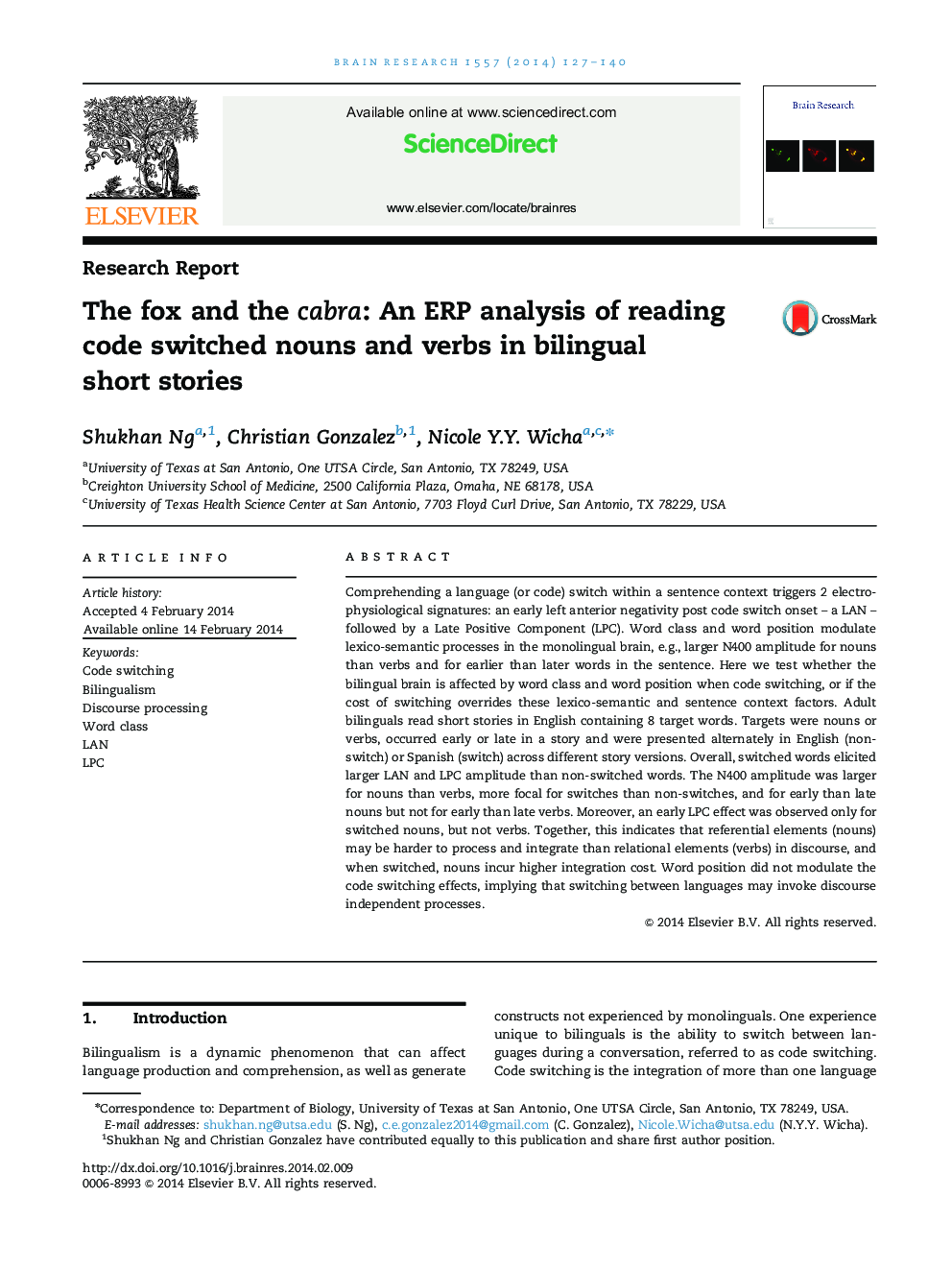| Article ID | Journal | Published Year | Pages | File Type |
|---|---|---|---|---|
| 6263396 | Brain Research | 2014 | 14 Pages |
â¢Adult bilinguals read short stories with occasional code-switched nouns and verbs.â¢Event-related potentials show that code switching increases LAN and LPC amplitude.â¢Switched nouns, not verbs, elicit larger LPCa amplitude.â¢Amount of preceding discourse did not modulate the code switch comprehension cost.â¢Referential phrases (nouns) may be harder to integrate into local and sentence context.
Comprehending a language (or code) switch within a sentence context triggers 2 electrophysiological signatures: an early left anterior negativity post code switch onset - a LAN - followed by a Late Positive Component (LPC). Word class and word position modulate lexico-semantic processes in the monolingual brain, e.g., larger N400 amplitude for nouns than verbs and for earlier than later words in the sentence. Here we test whether the bilingual brain is affected by word class and word position when code switching, or if the cost of switching overrides these lexico-semantic and sentence context factors. Adult bilinguals read short stories in English containing 8 target words. Targets were nouns or verbs, occurred early or late in a story and were presented alternately in English (non-switch) or Spanish (switch) across different story versions. Overall, switched words elicited larger LAN and LPC amplitude than non-switched words. The N400 amplitude was larger for nouns than verbs, more focal for switches than non-switches, and for early than late nouns but not for early than late verbs. Moreover, an early LPC effect was observed only for switched nouns, but not verbs. Together, this indicates that referential elements (nouns) may be harder to process and integrate than relational elements (verbs) in discourse, and when switched, nouns incur higher integration cost. Word position did not modulate the code switching effects, implying that switching between languages may invoke discourse independent processes.
